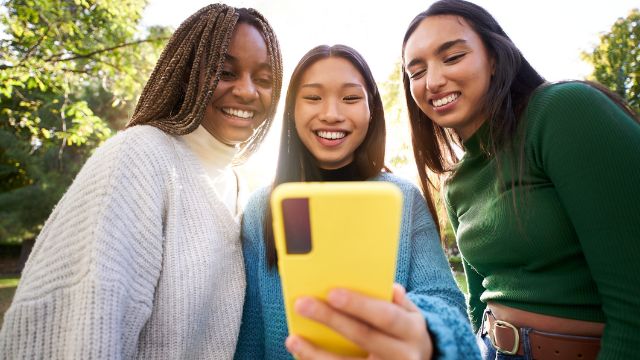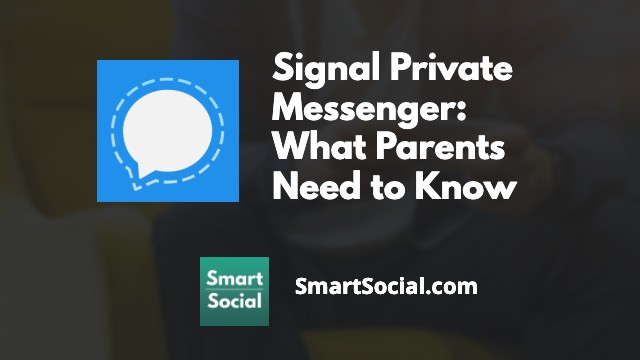Facebook Guide (2025): What Parents, Educators, & Students Need to Know
Green Zone App
(Click here to learn more)
Dangerous Social media challenge
(Click here to learn more)
Red Zone App
(Click here to learn more)
Gray Zone App
(Click here to learn more)
Facebook can be a great tool to help students Shine Online, even if they don’t want to use it to be social online. Parents, educators, and students will learn how to set up and use Facebook to create a positive online presence.
Parent, educator, & student training video
Facebook course worksheet
Download the PDF here and take notes throughout this course
What is Facebook?
- It’s a free online social media app that lets people connect with “Friends”
- Users can share text posts, photos, and videos for Friends or strangers to see
- The Feed is a mix of content generated by “Friends” and ads or sponsored posts
- Users can also watch livestreams and “stories,” play games, find events, and shop the Marketplace
- Meta (formerly Facebook, Inc.)owns the following: Facebook, Messenger, Messenger Kids, Instagram, WhatsApp, Oculus VR, Workplace, Facebook Gaming, Portal, Calibra, and others
- Facebook accounts can also be used to create many other accounts with services like Pinterest, Medium, TikTok, and more
How many teens use Facebook?
We’re retooling our teams to make serving young adults their north star, rather than optimizing for the larger number of older people. Like everything, this will involve trade-offs in our products and it will likely mean that the rest of our community will grow more slowly than it otherwise would have. But it should also mean that our services become stronger for young adults. This shift will take years, not months, to fully execute, and I think it's the right approach to building our community and company for the long term.
- Facebook had 2.9 billion monthly active users around the world in 2021 (Statista)
- 51% of US teens used Facebook in 2018, according to Pew researchers, and fewer teens sign up each year (Bloomberg & SocialMediaToday)
- Facebook Gaming, which allows users to watch other gamers play, is popular around the world

Facebook Gaming viewers watched a total of 1.29 billion hours of livestreamed content from July to September. YouTube Gaming viewers, meanwhile, watched 1.13 billion hours.
Where is the Facebook app available?

- Apple App Store Rating: 12+
- Google Play Rating: T (For Teen)
- App Developer website: Meta (formerly Facebook, Inc.) (Based in the USA)
- Terms of Service
- Data Policy
- Facebook’s Family Safety Center
Why should parents care about students using Facebook?
- Strangers can send students Friend and or instant messaging requests
- Students can be “tagged” in public photos, which will appear in Google results for your student’s name
- There are a lot of public concerns about how the company uses the data it collects on users and how algorithms select content to show users

Behind the scenes, Facebook programmed the algorithm that decides what people see in their news feeds to use the reaction emoji as signals to push more emotional and provocative content — including content likely to make them angry...
- Many people overshare on Facebook posts, which could lead to major privacy issues and have life-long career implications

A recent firing at The Associated Press is the latest example of the way in which our digital pasts are never far from the present…
- Users can find groups and discussions on any topic they want to learn about, but not all information shared is credible
- Facebook profiles show up high on Google searches, which could make your student look good or bad, depending on what they, or others, post
- Researchers are seeing more connections between social media use like Facebook and negative mental health for teens

Facebook allows private messaging and group video chats
- Students can send and receive private messages and make video calls on Facebook.com and the Messenger app (but not on the Facebook app)
- Users can create a free video meeting room on Messenger Rooms with unlimited chat time for up to 50 participants
- They can choose specific Facebook friends to invite or they can send out an invite link (even to people without a Facebook account)
- Privacy and online bullying are two of the major concerns about Messenger Rooms for student users who may not know how to control who is in their Messenger Room or what information is being shared in their “private” conversations online

Privacy seems to be the biggest concern being raised and here’s why. Messenger Rooms, like Facebook, collects metadata from users — including guests without Facebook accounts. Metadata may include the people you talk with, at what times, and how often, all of which can be shared with a third party. Also, Messenger Rooms, while it does not record calls (like Zoom), lacks end-to-end encryption, which makes the channel vulnerable to hackers and compromises private conversations.
What can parents & educators do?
- Explain the benefits of using Facebook as a platform to Shine Online for students, even if they don’t want to use it for social connections
- Talk about what type of content is appropriate to post and find examples of other students and mentors your student be might interested in following as part of their online presence on Facebook
- Explain the dangers of becoming Facebook "Friends" with people they don’t know in real life
- Even though many teens are not on Facebook, cyberbullying could still be a concern. Discuss cyberbullying with your student and let them know they can always come to you if they ever feel uncomfortable
- Check your student’s profile regularly. Help them update and review their Privacy Settings throughout the year and whenever app updates become available
- Talk with students about how to determine the credibility of information they read online to learn what information to trust when forming their own opinions
Why should students care?
- College admissions officers and hiring managers search for applicants online. You can decide what they will find out about you

More than a third of the nearly 300 college admissions officers surveyed by the Kaplan Test Prep company say they have visited sites like Facebook... to get more information about a prospective student
- You might accidentally share a lot of personal information if you’re not careful
- Photos and posts can help or hurt your image. Pictures and posts, which you consider to be harmless, could be seen differently by colleges
- You can behave well online, but your friends can still tag you in inappropriate party photos. Even if you don’t actively share your social life on the app, you probably have a friend who does
How to set up a positive Facebook for a positive impact
Students should keep public information Light, Bright & Polite™

- Use your account to tell your story, in a positive way, and manage what others will find out about you online
- Open your Facebook account under your real name to prevent someone from mistaking you for someone else
How students can use Facebook to their advantage
- Let your account showcase your strengths, interesting hobbies, volunteer work, and bright personality
- Sit down with your friends to examine your page. Ask them questions as they look through your photos pretending to be an admissions officer. How would they react to information they see?
- Untag yourself from any photos that might not help your online image. Once you’re untagged, you might consider politely asking that friend to remove the photo entirely so it won’t be online for others to discover
- Open your account page in an incognito/private browsing window to see how much public information you are revealing
Parent & educator video: How to set up Faceboook for a Positive Impact
Positive Facebook profiles help students Shine Online

I bet when you first created your Facebook profile, you didn’t think it would be the golden ticket to your next job opportunity... But it just might be… Facebook should not be ignored in the employment arena. Forbes
What Facebook can reveal to colleges and employers
- Real names and nicknames
- Friends and influencers
- Interests and hobbies
- Personal photos
- Travel
- Personality (through status updates)
Protect your privacy
- Never check in from your house, or it will reveal where you live
- Ask your friends to keep your info private on social media
- Don’t post about breaking school rules because teachers and principals can discover your page
- Party pictures can spread like wildfire online. If you get tagged in a photo where underage people are drinking or engaging in an illegal activity, you could get in trouble (even if you weren’t participating)

Facebook has announced a refresh of its 'Privacy Check-Up' tool, which highlights how your personal data is being, or can be used and displayed by Facebook, and what you can do to limit exposure of your personal information.
How to audit your Facebook activity
- Even though deleting old posts may not delete them from the internet, removing old posts or photos that do not display your current online image can help control what college and job recruiters see about you online
- From Settings and Privacy in the app, scroll down to Your Information and tap Activity Log
- Look through Your Posts, Activity You’re Tagged In, Interactions, Groups, Events and Reels, Profile Information, and Connections from your activity history and consider removing anything that doesn’t show you in a positive way
7 social media tips for teens on Facebook
- Don't include your middle name on your Facebook page (or any social media account).
- Don't use the "Check-in" feature from your home.
- Don't let your BFF "Check-in" at your house.
- Don't share your vacation plans or dates on social media (this helps burglars know when to visit your home).
- Ask your friends to keep your info private on social media.
- Parents, teachers, and principals can eventually see your page; everything you write or share can be discovered (so don't break the school rules, even if you think no one important can see it).
- Party pictures can spread like wildfire (not just on Facebook). Be very careful where you spend your time with your friends. If you get tagged in a photo at a party where people are drinking or doing drugs, you may get in trouble, even if you weren't behaving badly.
How to use Facebook's privacy settings

- Open the app and click on the three lines in the bottom right corner for the menu
- At the bottom, click Settings & Privacy, and then Settings again
- Scroll down to Audience and Visibility and tap Followers and Public Content
- Consider what setting is most appropriate for Who Can Follow Me, Who can see the people, Pages and lists you follow, Public Post Comments, Public Post Notifications, and Public Profile Info
- ~SmartSocial recommends the most restrictive settings “Friends” or “No One” for students until they are ready to Shine Online and have a plan in place of what information to share online and how to monitor their social media
Additional Permissions to consider
There are many additional privacy settings available on, including:
- Ad preferences
- Reviewing tags
- Location
- Active Status
Tip: Turn on ‘Quiet Mode’ to minimize interruptions

Facebook is launching a new feature called “Quiet Mode” that will allow you to minimize distractions by muting the app’s push notifications for a time frame you specify. Tech Crunch
More Facebook resources
- Facebook Safety: How to Ensure Your Kids Are Prepared
- Social Media Safety Tips For Teens On Facebook
- Facebook, WhatsApp, SMS, & Kik Messenger App Comparison
- Your Facebook Reputation Can Help or Hurt Your Future
- Messenger Kids: Facebook Chat App for Younger Children
Conclusion
Facebook can offer students a great way to share their strengths and goals. But like all social media platforms, it should be used in moderation. Continuous scrolling can lead users to compare themselves to others and to lose interest in offline activities. Students should remember to always stay smart about what they post and to never let Facebook, or any social media app, dominate their life.
Protect your family and enter for a chance to win cool prizes
Become a member or log in to learn more on this topic
Protect your family and enter for a chance to win cool prizes

., start learning from this page to earn points!*
Hello, I'm Josh, the founder of SmartSocial.com.
Don't leave this page until you fill out our feedback form that will appear after you learn from the resources...
Become a Very Informed Parent (VIP) to get our social media suggestions in your email every Tuesday & Thursday.



Hello, I'm Josh, the founder of SmartSocial.com. Protect your family by taking my 1 minute quiz
This quiz will help you understand how safe your family is


Schools & Districts: Partner with us to protect your community online
Our remote presentations (and website) teach over a million parents and students each year how to be safe so they can shine online. We teach students how their accounts can be used to create a portfolio of positive accomplishments that impress colleges and employers.


Join Our Smart Social Podcast
each week on iTunes
With over 500 episodes, Josh Ochs interviews psychologists, therapists, counselors, teachers, and parents while showing you how to navigate social media to someday shine online.
Listen on:



.jpg)



.jpg)


